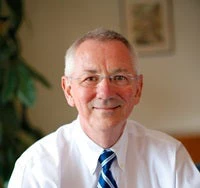Negotiators have worked through the past three nights in search of agreements that all nations can sign up to (see my last blog). At 3 am this morning they reached consensus on a package of decisions that represents progress in the journey towards a global deal.
But most of those in Cancun have more down-to-earth reasons for being here. They’re here to initiate action – to share experiences, learn from best practice, forge new partnerships, and launch new programs.
Here’s a sample from the past 48 hours of some of the action that we’ve been moving forward, when many heads of state, ministers and global leaders such as Ban Ki Moon and Bob Zoellick were in town.
Developing Countries push the frontiers on Carbon Markets:
A new Partnership of Market Readiness was launched by the World Bank and by ministers from 15 countries with the purpose of supporting innovation in developing nations on market based instruments. Countries like China, Chile, Columbia, India, Indonesia, Mexico, Ukraine and many others – are introducing their own market based instruments. This new facility – now US$30 million but expected to rise to US$100 million – will provide technical support to these efforts, and seek to share practical lessons for others to follow.
This is part of a much bigger movement on carbon markets here in Cancun. The Clean Development Mechanism is in need of reform so that transactions costs are reduced and low income countries get better access to funds. [So far around US$25 billion has flowed to developing countries through carbon markets, but only 2% of this goes to Africa.] The High level Advisory Group on Finance estimates that US$30-50 billion could flow annually to developing countries through the offset markets by 2020 with moderate progress in policies. The fact that so many leading developing countries are now creating their own internal markets could help hugely in driving down the cost of mitigation, bringing in new technology and, over time, building a linked global market

Soil Carbon – the Next Big Thing.
Three years ago many believed that including forests in carbon markets raised too many complex issues to be feasible. Hard work and piloting since then has shown that it is possible, and the REDD+ partnership is up and running and we are not far from the formal inclusion in offset markets.
We now need to do the same for agriculture, which currently accounts for 14% of GHG emissions, but which with the right interventions can in many contexts become a net “sequesterer” of carbon.
Yesterday in Cancun a group of leaders—including Prime Minister Meles of Ethiopia, Bob Zoellick of the World Bank, the US Secretary of Agriculture, and ministers from Vietnam, Uruguay, Norway and the Netherlands announced their commitment to invest in climate smart agriculture, and to help move forward the “triple win” in agriculture – investments that improve yields, improve climate resilience, and sequester more carbon in the soil. This builds upon a major international conference in The Hague last month, at which 100 countries and 70 ministers prepared the Roadmap for Action. Yesterday, Vietnam agreed to host a major ministerial meeting in 2012 at which the actions taken under the Roadmap will be evaluated, and the next phase launched.
Small Island States – It’s not just adaptation, silly.
Everybody agrees that the SIDS should be at the front of the queue for adaptation money. But they are also worthy recipients for help for renewable energy. Most of the 43 members of the Association of Small Island States AOSIS have very high fuel import bills, and the price of electricity is often very high (sometimes exceeding 50 cents/ KWh) due to low scale. In such circumstances renewable energy is an obvious solution, but again due to small size and low capacity they aren’t getting much access to financing for this purpose.
This is likely to change under a new AOSIS renewable energy program, launched yesterday and to be jointly administered by the World Bank and UNDP. Its purpose is to support AOSIS members “dock into” climate finance and technical assistance for renewable energy. Initially financed by Denmark, additional donors are expected to join, building capacity to scale up RE. This in turn will reduce large fuel import bills enabling small islands to allocate more funds to adaptation and other needs.
Climate Finance at Scale – Today!
While negotiators are trying to find common ground on the design of a new Green Fund, a major event hosted by the Mexican Government pointed out that the Climate Investment Funds (CIFs) are already up-and-running.
The CIFs should be watched closely for lessons for design of the new global climate fund. The CIFs are governed by the same 50-50 (developing-contributing countries) structure recommended in Copenhagen.
Just two years after their creation, the US$6.4 billion funds are operating in 45 countries, and are expected to leverage a total of over US$50 billion in clean technology and climate resilient investments. Mexico was the earliest leader in calling for a global fund for climate change, and President Calderon and his Ministers of Finance and Energy addressed delegates, pointing to the transformative investments that the CIFs are supporting in Mexico. They were joined by presidents of the World Bank and Regional Development Banks (which jointly manage the funds), and by Ministers from Morocco and Zambia.
Morocco is part of the US$6 billion solar energy program in North Africa that will more than double the total installed capacity of Concentrated Solar Power within the developing world – enabling these countries to extend electricity access, and sell power to Europe. And Zambia is being supported by the CIFs in its economy-wide adaptation program.
No Time for Patience
Your Grandma no doubt told you that patience is a virtue. Don’t believe her. When climate change threatens to steal the future, we need to act now. Developing countries urgently need a strong comprehensive global deal on climate. But they’re not waiting for it.


Join the Conversation